Informasjon om norsk grunnskole//Compulsory ten-year school in Norway
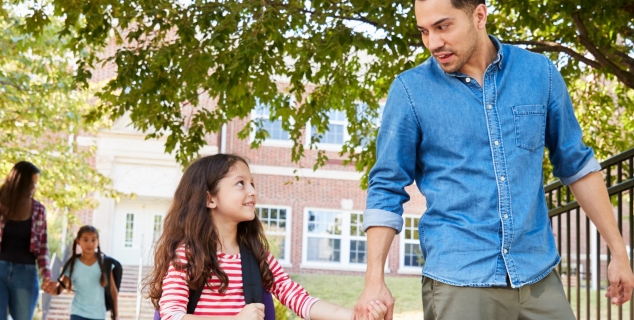
Norwegian compulsory schooling lasts for ten years and is divided into primary school (“barneskole”) and lower secondary school (“ungdomsskole”). Primary school consists of 7 academic years: 1st through 7th grade. Lower secondary school consists of 3 academic years: 8th through 10th grade. Children start first grade the year they turn 6 years old, and then move up one grade after each summer holiday.
A school year lasts from the middle of August until around the 20th of June. In the academic calendar (“skoleruta”) you will find information about all the holidays and days off throughout the school year. The school will provide a calendar, or you can find it on your municipality’s website.
Public compulsory education is free
There are both public and private primary and secondary schools. The municipalities own the public schools. Attending a public school is free. This means that the tuition, equipment and other activities that are a part of the education, are all free. Every child between 6 and 16 years of age has the right to a public education.
Absence and leave
In Norway, school is compulsory for all children between 6 and 16 years of age. This means that the pupil must attend school every school day, and she must attend every class during each school day. Parents are not free to decide if or when their child should have time off.
The school registers whether the pupils are present each day. If a pupil is too ill to attend school, his parents may keep him at home. Parents are responsible for notifying the school when their child is ill. The school should be notified in the morning before the school day starts. If the illness lasts for more than a day, a doctor’s note may be necessary.
If a pupil needs time off school outside of the holidays in the academic calendar, her parents must apply for a leave of absence in advance. The application should state the reason for taking leave. The municipality can approve a leave of up to two weeks if this can be done responsibly. Pupils who are affiliated with a religious society other than the Church of Norway have the right to observe religious holidays and have these days off school. They must apply for leave on these days.
The Norwegian school system values the basic human rights. The inviolable dignity of humans is an important value that the school system always seeks to live by.

Every pupil should be safe and well at school
The school should trust and respect its pupils. No pupil should be discriminated against or harassed in any way. Every pupil should feel a sense of belonging to his class and his school. Every member of faculty should ensure pupils’ wellbeing at school. If an adult knows – or suspects – that a pupil is being bullied, bothered or in any other way is not getting on well at school, she should always:
- step in and stop the violation, if possible;
- notify the principal/headmaster;
- investigate what has happened
If a pupil feels unsafe or unwell at school, the principal is responsible for planning and executing interventions to ensure the pupil’s safety and well-being at school. This is called the school’s “responsibility for action”.
Orderliness and conduct
The schools have rules of orderliness and conduct that pupils are required to follow. In the Norwegian school system, orderliness and conduct are enforced through dialogue. If a pupil does not follow the rules, a teacher will first speak to the pupil about this. If the pupil continues to break the rules after this conversation, her parents are contacted so that they are informed of what has happened and can talk to her about it at home. Each class may also have its own classroom rules that the pupils and teachers agree on. Such rules describe what the class wants the classroom environment to be like in order for them to get on well and learn as much as possible.
All pupils should have the same opportunity to learn.
The school should provide every pupil the same opportunity to learn and grow, regardless of their background and prerequisite knowledge and skills. The school should take into consideration the fact that all children are different and help them feel at home at school and in society. The compulsory education should provide knowledge and a desire to learn throughout life. The school should help its pupils:
- grow on a personal level
- grow academically
- have a sense of fellowship
Adapted education
The compulsory education should be adapted to all pupils. All children are different and learn in different ways, and so the school should provide an education that ensures the best benefit to each pupil.
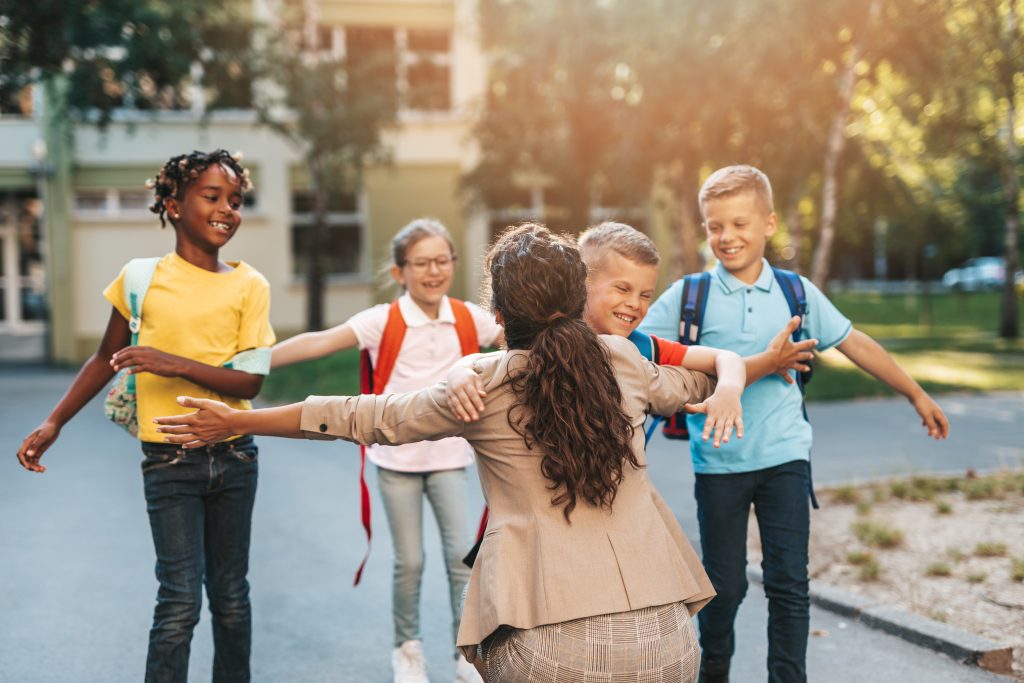
Special education
Some pupils have a right to special education. If a pupil’s parents or the school experience that a child is not benefiting properly from the ordinary instruction, the school should adapt the instruction to the pupil. If an adapted instruction does not help, the school and the Educational-Psychological Service (PPT) should cooperate with the pupil’s parents in evaluating a need for extra interventions in order for the pupil to benefit properly from his schooling. Such interventions are called special education. Special education may entail special learning objectives (different from the rest of the group), special equipment, and/or extra support from an adult in the classroom and/or during recess.
The Education Act says that schools and parents are mutually responsible for children’s education. The school is obligated to cooperate with the parents. This cooperation takes place on a national level as well as at each individual school.
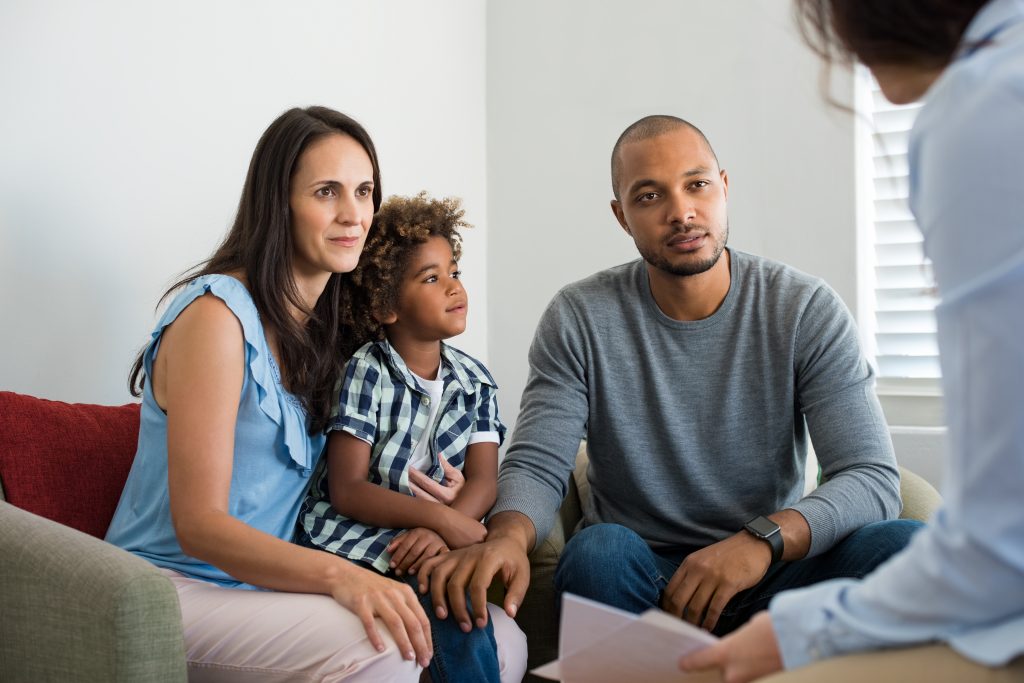
Cooperation on a national level
The government has established the National Parents’ Committee for Primary and Secondary Education (FUG). FUG advises both parents and schools, as well as government authorities on matters relating to the cooperation between homes and schools.
Cooperation with the school
The parents at each school elect a Parents’ Working Committee (FAU). FAU cooperates with the school and advises the principal.
Most schools elect parent representatives from each class for one school year at a time. The parent representative cooperates with the teachers and brings up concerns with the school on behalf of all the parents from the class.
Cooperation within the class
All schools must organize a parents’ meeting at the beginning of the school year. Most have two parents’ meetings during the course of a year, and some have more. Parents’ meetings are for all parents in one class or one grade. At parents’ meetings, parents are informed about the school, the academic calendar and any routines the school follows. You will also be informed of the contents of your child’s education and anything else you need to know.
At the parents’ meetings, parents have the opportunity to get to know each other. This will be important when the children spend time together, both at school and during their spare time.
A child’s parents mean a lot for his education. It is important that the school and the parents cooperate well in order for the child to succeed. You as a parent are obligated to attend development talks and parents’ meetings. It is important that you show an interest in your child’s education. If the school is to adapt the instruction to your child’s needs, it is important that you share anything the school needs to know about your child.
How can you show an interest in your child’s education?
There are several things you as a parent can do to show an interest in your child’s education. You can:
- talk to your child about what they are doing and learning at school
- set aside time for your child to do homework
- be available to help your child with their homework
- participate in activities organized by the school
- get in touch with the school if you have any questions or concerns, or to seek or provide information
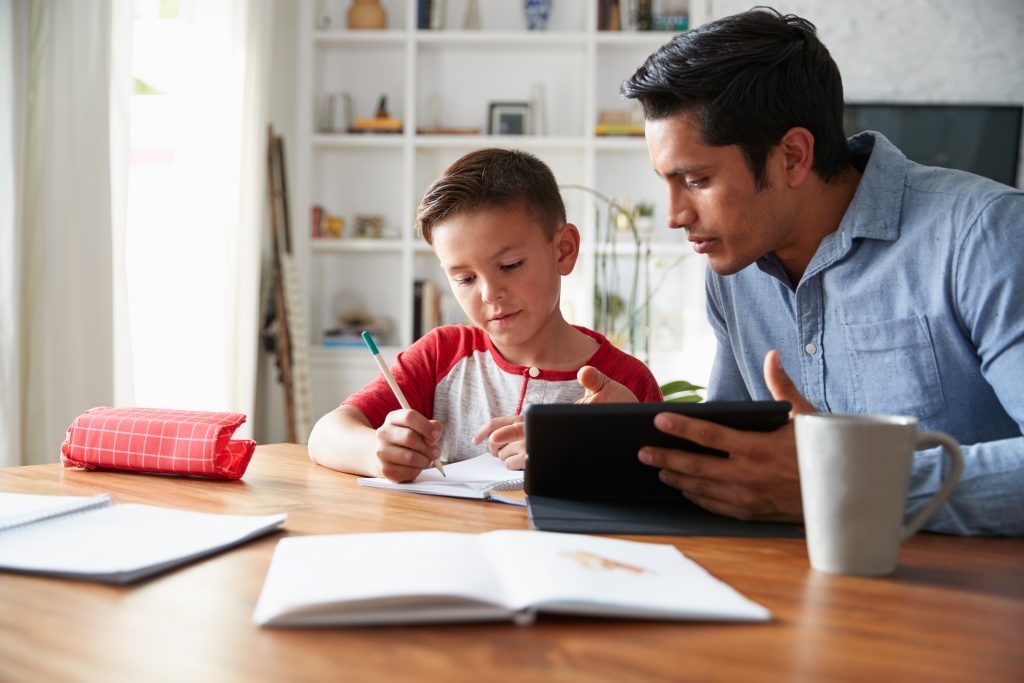
Development talk
A development talk (“utviklingssamtale”) is a meeting between a pupil, her parents and her class teacher, where they discuss how the child is getting on at school. The aim of the conversation is to decide how the school and the parents can support and stimulate the child’s academic and social development. Another important aim is to decide how the pupil herself can work to improve her learning outcomes.
The pupil and her parents meet the class teacher for a development talk at least twice during each school year. You should talk to your child before these meetings and take note of any questions you have for the school. The school is obligated to keep in touch with you as a parent outside of the meetings as well, if necessary.
Parents and teachers may also meet for a development talk without the child present
Any member of faculty at your child’s school is bound to confidentiality. This means they cannot pass on to anyone else any personal information about you or your children that they have learned through employment at the school. A confidentiality breach is a punishable offense.
There are two exceptions to the duty of confidentiality:
- If your child needs extra help or support from someone outside of the school, you may consent to the school providing necessary information to those who will be helping your child. Your consent then means that you are allowing the school to share personal information with someone else. You and the school must agree upon what information they can share. This consent is valid for a limited time, and you can withdraw it at any time.
- If the school has reason to believe a child is a victim of neglect or in danger of any sort of harm, the faculty is obligated to inform the child welfare authorities.
Interpretation
It is important for the school and parents to communicate well and understand each other. Sometimes this may require using an interpreter. You yourself or the school may request interpretation. If you need an interpreter for e.g. a parents’ meeting, you should inform the school in advance. The school will then book and pay for the interpreter. Interpreters are bound by confidentiality, and children may not be used as interpreters.
The core curriculum explains the values and principles that influence education in Norway, and it applies to both primary and secondary education.
The core curriculum emphasizes consciousness of the environment, development of critical thinking and ethical judgments, and how democracy works in practice.
Pupils should develop gradual and long-lasting knowledge and undestanding. They should be able to reflect upon their own learning outcomes and use what they have learned in different contexts. They should practice asking questions and looking for answers, both alone and in groups. Pupils should learn how to learn. Cooperation, innovation, creativity, discernment, reflection, curiosity and exploration are important aspects of this.
The core curriculum
The Education Act governs public primary and secondary education, and the national curriculum determines the contents of education. The curriculum consists of an overriding core curriculum as well as specific curricula for each subject.
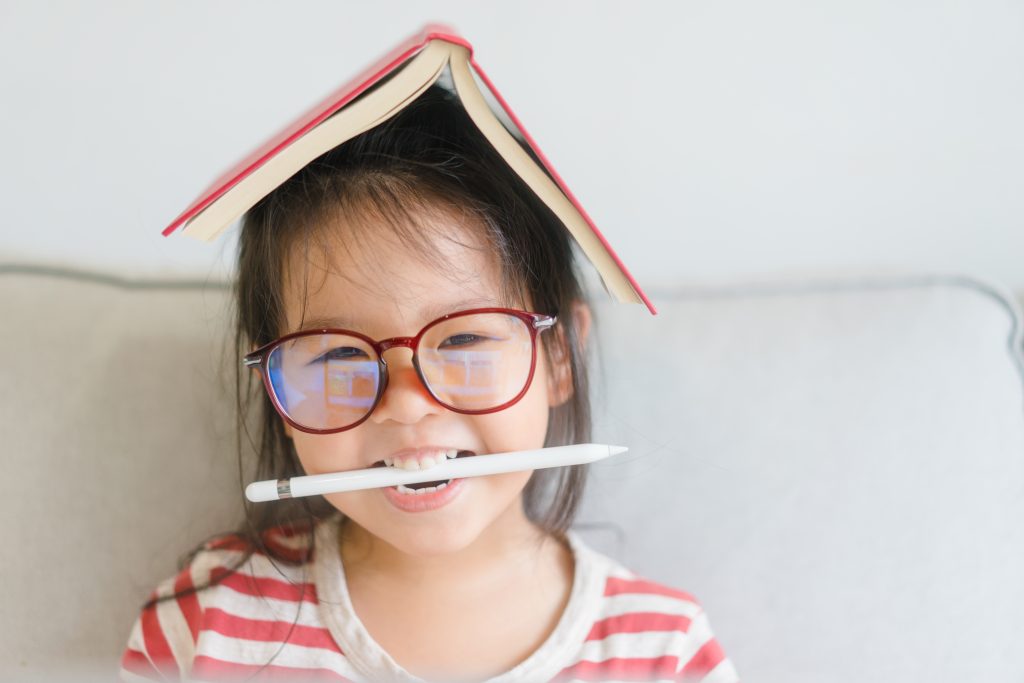
Subject curricula
The subject curricula lay out what pupils are to learn during each year of schooling. The individual school decides how the pupils will work towards the competence aims listed in the curricula.
Assessment
Pupils should receive formative assessments from their teachers from the first year onward. These assessments are important for an adapted education. The assessments should also help the pupil understand what he himself can do to improve his learning outcomes. Formative assessments are given throughout the year in each subject as well as in orderliness and conduct and may be given in writing or orally.
In primary school, pupils are not given marks. In lower secondary school, assessments are given both with and without marks. The scale of marks is 1 through 6, where 6 is the best mark. Every pupil should also assess their own work, development and competence. This is called self-assessment.
Pupils who have a mother tongue other than Norwegian or Sami, have a right to special language instruction until they have learned enough Norwegian to follow the ordinary instruction in their class. Special language instruction may consist of:
- Special Norwegian instruction – where the pupil learns the Norwegian language
- Bilingual subject instruction – where the pupil is helped to understand subjects in their own mother tongue
- Mother tongue instruction – where the pupil is taught in their own mother tongue
The school is to evaluate the pupil’s knowledge of Norwegian in order to decide whether she has a right to special language instruction. If the evaluation finds that the pupil has a right to special language instruction, an individual decision is to be made on what the contents and extent of this instruction will be. You as a parent have the right to appeal this decision.
Special Norwegian instruction
Pupils who have only lived in Norway for a short time can be given special classes in order to learn the language. There is a special curriculum for such classes. As they learn more Norwegian, they can follow more of their class’ ordinary instruction, with some extra help. The aim of special Norwegian instruction is for the pupil to learn enough Norwegian to be able to follow ordinary instruction with no extra help. It may take a long time, often several years, for someone to learn enough Norwegian to be able to benefit from instruction in all classes in Norwegian.
Bilingual subject instruction
While a pupil learns Norwegian, he should also continue to study other subjects. It may be necessary for the pupil to be helped in his mother tongue so he can understand the contents of the subjects. In this case, the subject teacher and a bilingual teacher should collaborate on the instruction for this pupil. This is called bilingual subject instruction, and entails the pupil being taught subjects in two languages. Any pupil who needs such instruction has a right to it.
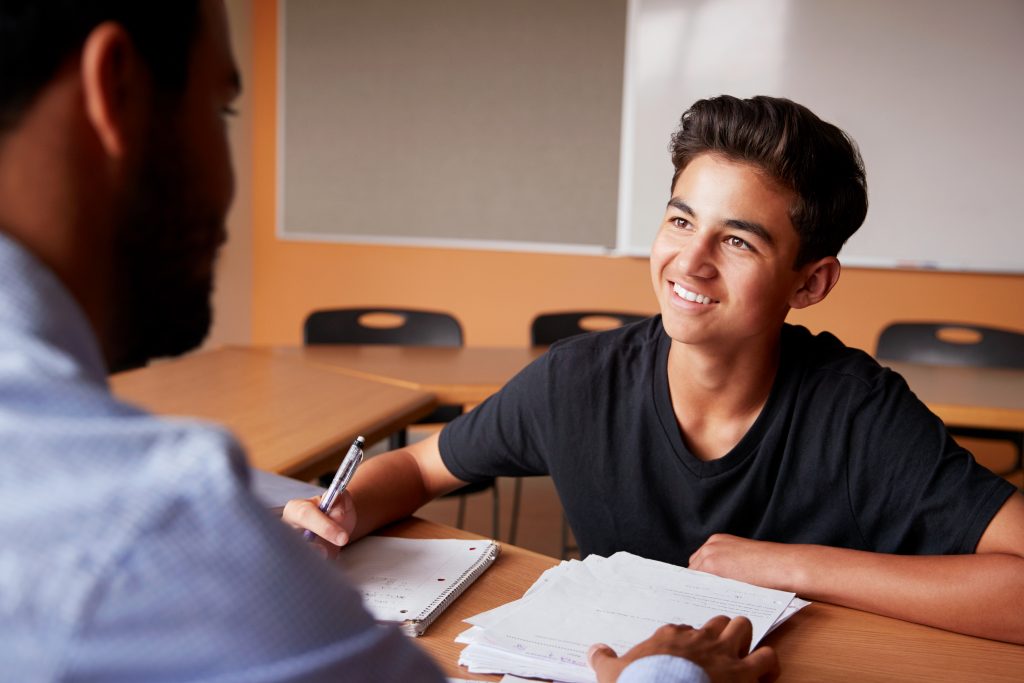
Mother tongue instruction
Mother tongue instruction aims to teach a pupil more of her first language. This may make it easier for the pupil to learn Norwegian as well. The school is to evaluate whether a pupil needs mother tongue instruction. If the school finds that the pupil needs it, she has a right to it.
Introductory instruction for newly arrived pupils
Newly arrived pupils may be offered a special introductory instruction programme before joining regular classes. The municipality may choose to organize introductory instruction in separate groups, classes or schools. Attending an introductory programme is voluntary, but many pupils get on better in regular classes after attending an introductory programme first. The instruction in an introductory programme should ensure inclusion and a positive learning environment.
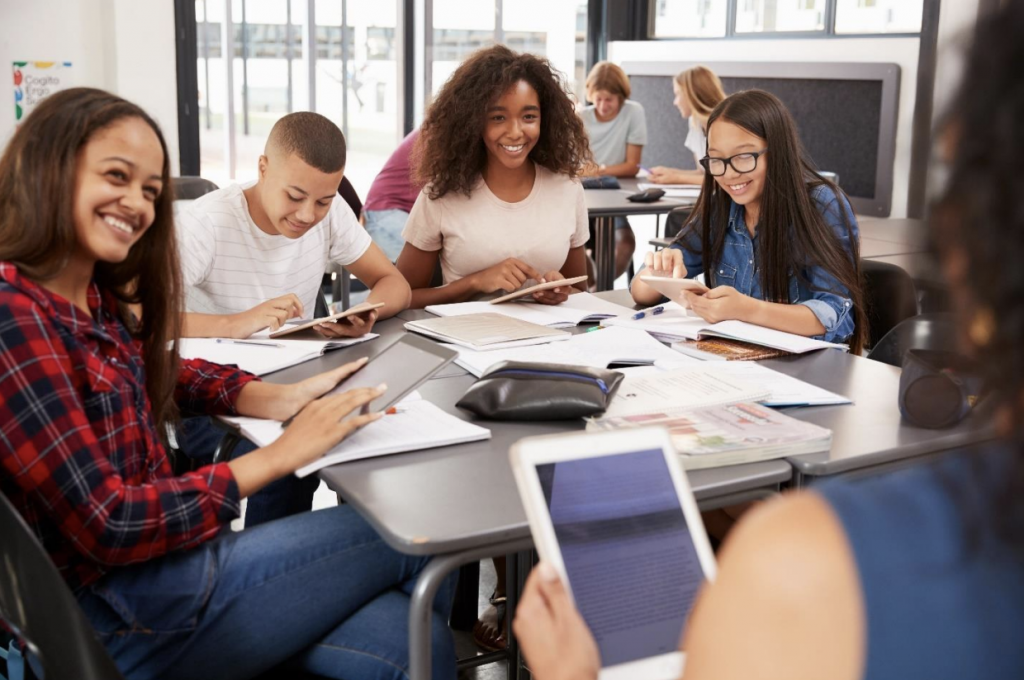
In every year of school, it is common for pupils to go on outings and excursions, to visit museums or do other activities outside of the classroom. This is considered instruction on the same level as the instruction that takes place at school, and it is compulsory for pupils to participate.
At many schools, pupils may go to a school camp for several days, also spending nights there. The aim of a visit to a school camp is to strengthen the pupils academically and socially. Outings that are organized by the school, are free of charge. If you have any questions about outings or school camp, you can speak to your class teacher to learn more about the plans for the activity.
Education should be adapted outside the classroom as well. It is important that all pupils participate in order to practice different learning methods, and outings may have a very positive effect on the class’ social environment. If anything may prevent your child from participating, it is important that you bring this up with your class teacher so that adaptations may be made for your child.
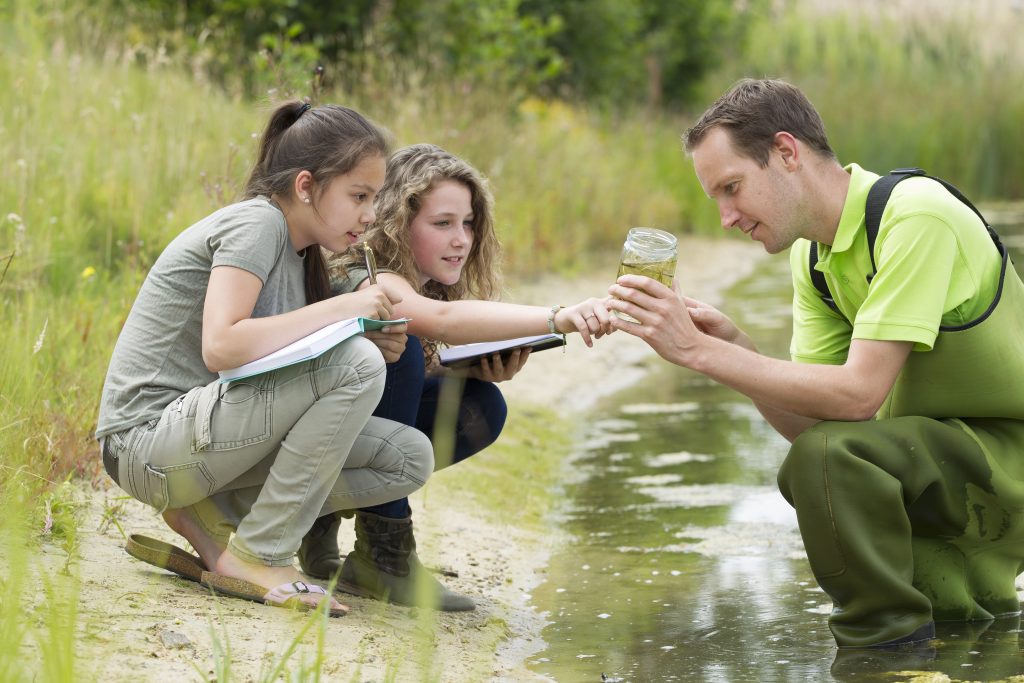
It is common for pupils to be assigned work to do at home after school. Homework usually relates to a topic that has already been taught, and that pupils are asked to continue working on at home. You as a parent should try to pay attention and show an interest in your child’s homework.
Every school offers homework help. It may vary from school to school which years’ pupils are able to use this. In some municipalities, non-profit organizations offer homework help. You can ask the school what options there are for your child.
Children and youth learn during school hours, but also during their spare time.
After-school programme (SFO/Aktivitetsskole)
Every school has an after-school programme for pupils in year 1–4. The after-school programme offers supervision, care and activities outside of school hours. Your municipality may charge a monthly fee for your child to attend this programme.
Extracurricular activities
Many children and youth participate in extracurricular activities, which can be a valuable learning experience. If classmates share extracurricular interests, it may be easier to form friendships and create a positive social environment. You as parents also play a part when it comes to your children’s activities. Parents will often carpool to sports practice or help out with different events. Some may coach sports teams or contribute to their child’s activities in other ways. You as a parent may want to discuss extracurricular options with the other parents in your child’s class. Many teachers are also informed of what sorts of activities their pupils participate in.
Birthday parties
It is common to invite classmates to birthday parties, especially in primary school. Many children have allergies or other dietary preferences that can make it difficult to attend. It is a good idea to inform other parents of any dietary restrictions before your child attends a birthday party. It is also common to bring a small gift for the birthday child. You may want to discuss birthdays at a parents’ meeting and agree on what sorts of birthday gifts your children should exchange. It is very important that no child is excluded from such events.
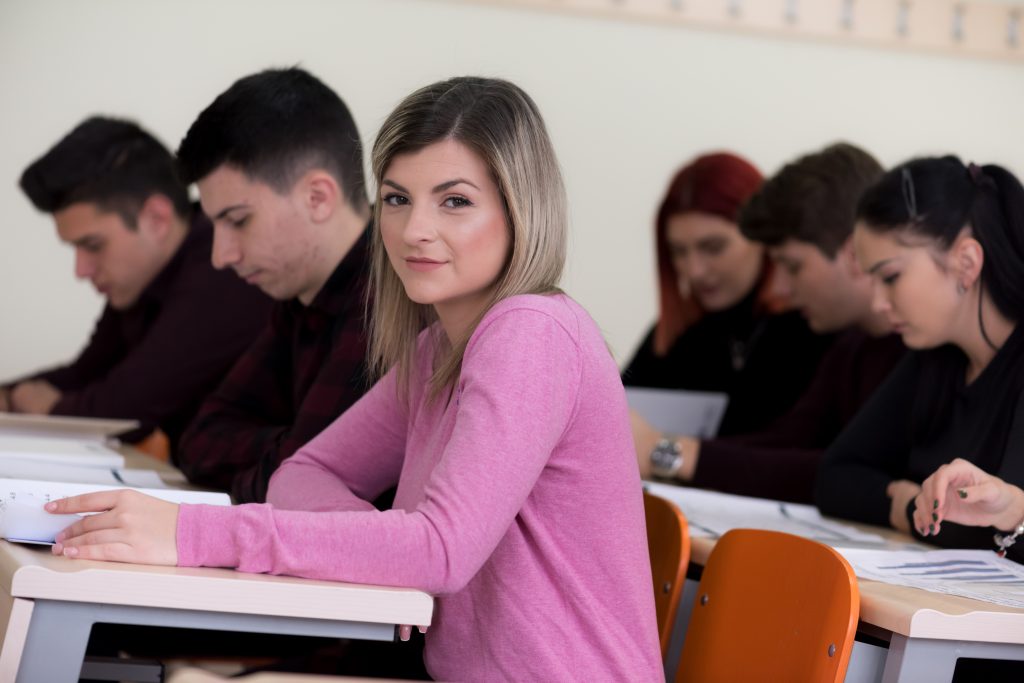
The right to educational welfare guidance
The school is to contribute to its pupils’ personal, social and academic development. Educational welfare services should help pupils find their place in school, and help them with any personal, social or emotional problems that may impact their learning and social environment at school.
Guidance counsellors may help uncover problems and their extent, and clarify how the school can help. Pupils may also be helped outside of school. The school counsellor can help you get in touch with the appropriate support services.
Educational and vocational guidance
Guidance counsellors at lower secondary schools are to provide information to pupils and parents as to the pupil’s options for upper secondary education.
Educational and vocational guidance should help pupils become conscious of their own values, interests and skills. This will help build self-knowledge and the ability to make good choices for one’s future career. Counsellors should help pupils evaluate the consequences of their choices and prevent an unsuitable choice of education or vocation.
Pupils should be informed and advised as to:
- vocational options
- opportunities for further education in Norway or abroad
- national and international employment markets
- the use of various guidance tools
The transition to upper secondary school
Pupils who have completed their compulsory education, have a right to go to upper secondary school (“videregående skole”). During the 10th year of school, pupils apply for upper secondary school.
Pupils who immigrate to Norway towards the end of lower secondary school, may need extra instruction before they are ready for upper secondary school. Some municipalities offer an extra year of lower secondary education for those who need it. In other places, pupils may attend a programme for adults or an introductory programme at an upper secondary school. Many areas have so-called combination classes where pupils receive extra lower-secondary instruction at an upper secondary school.
Alle foto er hentet fra shutterstock.com
- Du vil kanskje også like:
- Om barnehage og skolesystemet
- Tag: samlesideoppstartskole, samlesideoppstartskole